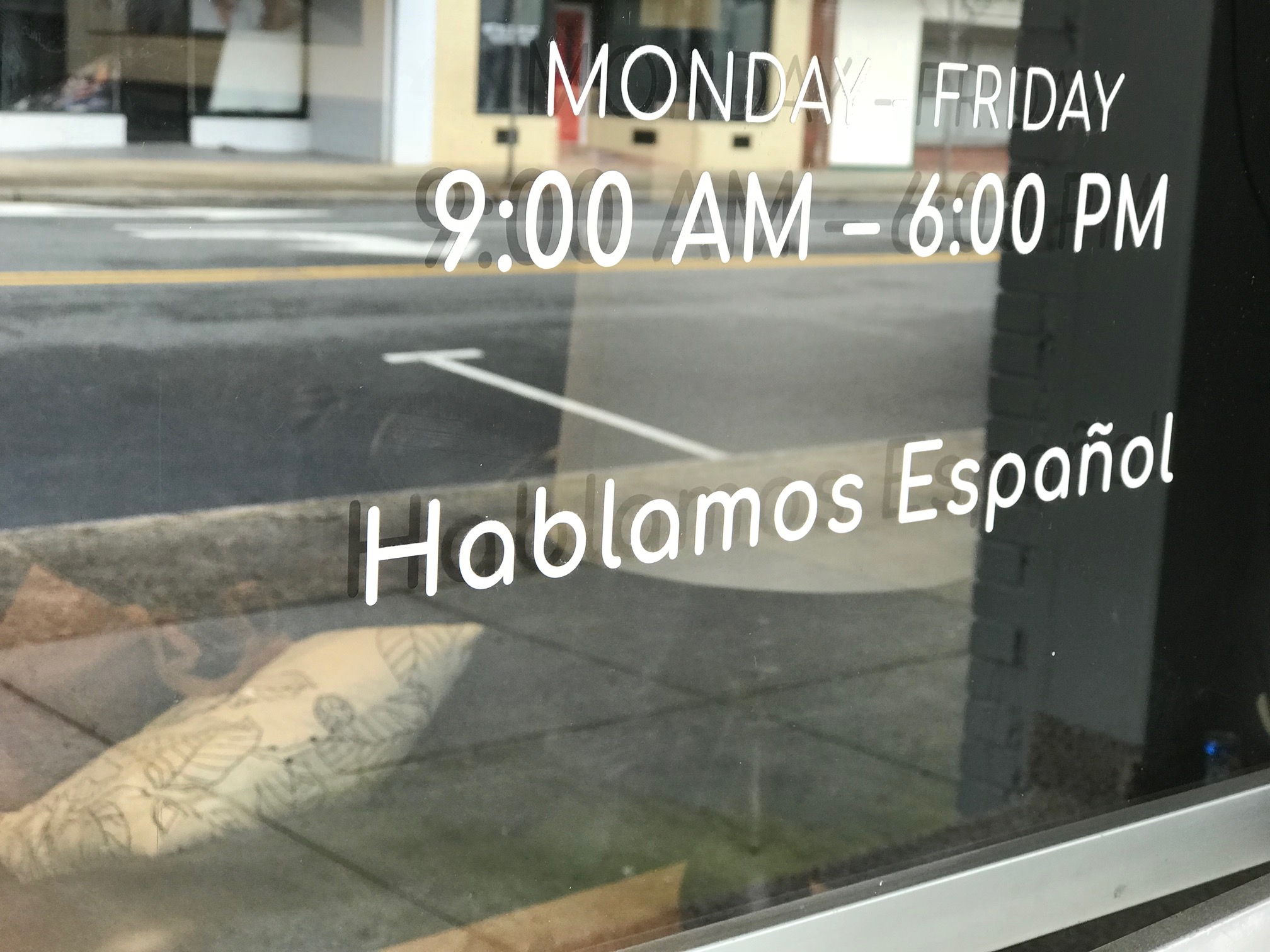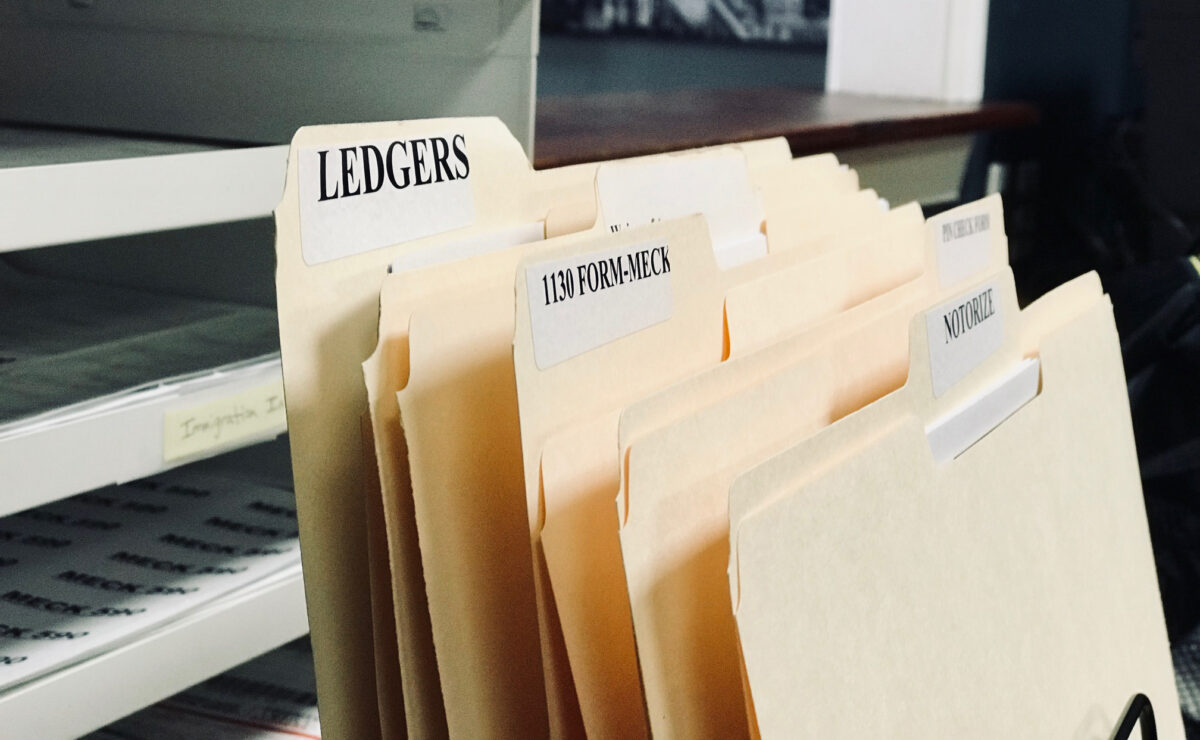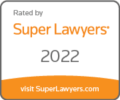Criminal defense related questions & answers
If you have gotten a speeding ticket or other traffic ticket, it is extremely important that you know your rights before taking action. A prosecutor may offer you a reduction on your ticket, but they are not required to advise you of the impact on your license or insurance. The consequences of a traffic ticket in North Carolina are deceptively complex, and many lawyers are not equipped to advise you of all of them potential consequences of your ticket. Attorney Ronald Shook has handled thousands of traffic cases, and can help you by negotiating a resolution that minimizes the consequences to you.
Once you have been arrested, and formal charges have been brought against you, the court process is as follows:
For Misdemeanors:
- First Appearance: This will be your initial appearance in the courtroom. Your attorney can handle this appearance for you, and plead not guilty, if appropriate. You will be given the chance to hire an attorney, or to have one appointed for you. You will then be given a new court date.
- Pre-trial Negotiations: This is where your attorney will fight to have the charges against you reduced, or dismissed entirely through discussions with the prosecutor, law enforcement, and potential witnesses. This process can last between one and six months.
- Trial: If your case can not be settled during pre-trial negotiations, then it may be necessary to proceed to trial. Your case will be set for a bench trial before a judge. At trial, the burden of proof is on the prosecutor. In many counties the volume of cases is so high that the District Attorney’s office is reluctant to let misdemeanor cases get this far. Most misdemeanor cases are resolved pre-trial.
For Felonies:
- First Appearance: You are required to be present at your initial hearing. There, you will be advised of the charges against you, the maximum possible punishment, and your right to an attorney.
- Preliminary Settings/Discovery: This is your chance to collect and review the evidence that the prosecutor has against you.
- Pre-Trial Negotiations: Before court, you attorney will meet with the prosecutor to discuss your case, and discuss possible alternatives to trial, such as probation.
- Probable Cause Hearing: If a plea arrangement cannot be reached, your attorney may request a hearing to challenge the prosecution’s evidence against you. This is your opportunity to cross examine witnesses that intend to testify against you. This process may provide an additional opportunity to settle the case before trial because it gives both sides the chance to evaluate the strengths and weaknesses of the case.
- Grand Jury: If the judge finds that there is probable cause to proceed with the charges against you, then your case will be sent before a grand jury. If the grand jury finds that there is sufficient evidence against you, then they will return a bill of indictment.
- Arraignment: Here the bill of indictment is presented and you are required to enter a plea of guilty or not guilty. You must be present for this proceeding.
- Motions and Settlement Conferences: Your attorney will file various motions in order to improve your chances at trial. This period of time is used to gather evidence which will help to build a defense in your case.
- Trial: You make the final decision as to whether or not to proceed to trial. Your attorney should clearly inform you of your rights at every step of the process. Last minute settlements and plea agreements are common leading up to trial.
- Sentencing: If you have accepted a plea agreement, then your sentence will be set based upon the terms of the arrangement. If you are found guilty, then your attorney should fight to get you the lowest possible sentence.
Do you think a speeding ticket isn’t worth fighting? Well, under North Carolina’s point system, a single speeding ticket could result in between one and four points against your license, and with only two tickets, you could potentially lose your license. Additionally, you will be paying higher insurance premiums for a period of six months to several years. Hiring an attorney can help you to get the speeding ticket reduced or dismissed for a fraction of the cost of increased insurance premiums.
People often wonder whether or not court appointed clients are treated any differently than those who are privately retained. A lawyer’s duty is to zealously defend the legal rights of his or her clients within the law. However, public defenders, and other court appointed attorneys usually have a very large case load, and naturally, an individual client’s time with that attorney will suffer as a result of this. It is not uncommon for a client with a court appointed attorney to have their first meeting with their attorney in the courthouse on the day of their trial! At The Law Offices of Ronald J Shook, we believe that each client deserves individualized attention, and we strive to answer all of our client’s questions before the date of trial.
Driving While Impaired (DWI) is an offense committed when a person operates a motor vehicle in a physically or mentally impaired condition. The most common example of this is when a person operates a motor vehicle while under the influence of alcohol or drugs. A person has committed a DWI offense if they operate a motor vehicle while their blood alcohol content is above the statutory limit (currently .08).
In North Carolina, there are two DWI felony offenses:
- Felony Death by Motor Vehicle
- Felony Habitual DWI
If you register a blood alcohol content of .08 or more on a blood or breath test, you will lose your driving privilege in North Carolina for 30 days. You may, however, be eligible for a limited driving privilege after 10 days. If you are convicted of DWI, you will lose your license for a period of at least one year.
1st Offense: If there are no prior DWI convictions within the past three years, then you will lose your license for one year.
2nd Offense: Being convicted of two DWI offenses within three years will cause you to lose your license for four years.
3rd Offense: Three offenses within ten years (the previous two having occurred within five years) will result in a permanent loss of a driver’s license. After five years, the individual can request a DMV hearing to re-instate the license.
Habitual Impaired Driving: Four DWI convictions within a seven year period will result in a conviction of Habitual Impaired Driving, which is a felony in North Carolina, and carries a minimum jail sentence of one year. Additionally, such a conviction will result in a permanent and final loss of driving privileges in North Carolina.
Refusal to take a breath test will result in a thirty day revocation of your license. Additionally, your license will automatically be suspended for one year. You should consult an attorney to minimize these consequences.
You have the right to ask why you have been stopped. The police may conduct a brief “pat down” of your body if they suspect that you are carrying a concealed weapon, but you may refuse any further searches. If you are arrested in North Carolina, then you have the right to remain silent (and you should remain silent). You also have the right to talk to a lawyer.
You are not required to have a lawyer in North Carolina; however, you have the right to have a lawyer represent you if you wish. Even if you are innocent, having a lawyer makes sense. A skilled lawyer will help prevent you from incriminating yourself, and can help you to prove your innocence.

Immigration related questions & answers
A “Notice to Appear” is issue by ICE to those aliens who are suspected of being in violation of immigration law. You must appear at your court hearing as scheduled, or you may risk losing any rights that you may have. Competent legal representation may help you avoid deportation.
Detention is usually the beginning of the removal process. The Department of Homeland Security can detain an individual who is suspected of being in violation of U.S. immigration law. A person who does not have a criminal history, and who has strong ties to the community should be able to obtain a reasonable immigration bond, which will allow them to come home until their court date. In order to obtain an immigration bond, the individual may usually negotiate with ICE agents where the person is being detained. If the bond amount is unreasonable, then a bond hearing may be set in front of an immigration judge who has the ability to re-determine the bond amount. If the individual has a criminal history, obtaining a reasonable bond is much more difficult.
The very first hearing is called a master calendar hearing. At this hearing the Judge will determine if the government has properly served the foreign national with the charging document and will review the charges with the individual. The judge will also advise the individual of his rights in removal proceedings. The Judge may then require pleadings to be made as to the factual allegations and the charge of removal. It is up to the government to prove that the foreign national is subject to removal by “clear and convincing evidence.” The Judge will then review the evidence presented by the government and determine whether or not they have sustained the burden of proof.
Foreign nationals have the 5th amendment right to due process. Additionally, foreign nationals have a right to legal counsel throughout the removal process. Unlike U.S. criminal court, U.S. immigration court is a civil process, and free representation is not available from the government for those who cannot afford it. Therefore, individuals must pay for their own representation. Finally, Non-U.S. citizens are entitled to view the government’s evidence against them, have access to their alien file, and to cross examine government witnesses. Decisions made at the immigration court are appealable to the Board of Immigration Appeals or to the Federal Circuit Court where the initial proceeding concluded.
If your spouse entered the country with a visa, and overstayed, there are many options for relief available; adjustment of status being the most important. If the individual entered the country without having been inspected by U.S. Customs and Border Protection, then their options are more limited. If the person has been physically present in the U.S. for more than ten years, and has not committed any crimes, then the person may be eligible for “cancellation of removal.” Cancellation of removal is very difficult to obtain. If the individual entered the country fearing persecution from the government of their native country, then the person might be eligible for asylum, and withholding of removal. There are several other options available, and it would be difficult to list them all here, the above options are the most common methods of obtaining status without having to first leave the U.S. If the individual is not eligible for the above methods, they must leave the country and return through lawful channels.
Unlawful presence is a term that applies to anyone who is currently out of status or who entered the country without having been inspected by U.S. Customs and Border Protection. Unlawful presence begins accruing from the date that the individual first entered the country, or from the date that the individual lost their status. If a person leaves the U.S. after having accrued more than six months to one year of unlawful presence, they are barred from returning for three years. If the person leaves the U.S. after having accrued more than one year of unlawful presence, then they are barred from returning for ten years.
An individual may enter the U.S. temporarily for a variety of reasons, including as a visitor, tourist, businessperson, student, or temporary employee. These temporary visas are called non-immigrant visas and are issued at U.S. embassies and consulates in most countries. For employment visas, the employer must obtain approval from USCIS prior to the worker applying for the visa. For student visas, the student must be accepted at a qualifying school prior to applying for the visa. If the visa officer at the issuing embassy is not convinced that the applicant will comply with the terms of the visa, then the individuals petition may be declined. This is especially true where the visa officer is not convinced that the individual intends to leave the country at the end of the authorized stay. Visas which are denied on such ground will often state that the individual is suspected of having “immigrant intent.” The applicant must demonstrate sufficient ties to their home country to convince the officer that they intend to return to their home country once the visa has expired. A visa, in and of itself, does not guarantee entry into the U.S. The immigration officer at the U.S. port of entry makes that determination.
H1B status is available to individuals who first have an offer from a U.S. employer. Additionally, the individual must possess, at minimum, a bachelor’s degree, or its equivalent in a specialized area of knowledge. The job offered must be a specialty occupation, and it is up to the employer to file the necessary petition. The number of first-time H1B’s is capped each year. The period can be extended in one year increments indefinitely.
An individual may obtain permanent resident status through a relative in one of five ways:
- Immediate Relative – Spouses, parents, and children (under 21) of U.S. citizens.
- First Preference – Unmarried sons and daughters (21 years and older) of U.S. citizens.
- Second Preference – Spouses and minor unmarried children of U.S. permanent residents are F2A, and unmarried sons and daughters of U.S. permanent residents are F2B.
- Third Preference – Married sons and daughters of U.S. citizens.
- Fourth Preference – Brothers and sisters of U.S. citizens.
There are four ways to become a U.S. citizen:
- By birth in the U.S.
- Being born to U.S. citizen parents outside of the U.S.
- By derivation through naturalized parents.
- By naturalization application.
Citizenship by naturalization is available to individuals who meet the following criteria:
- Obtain permanent resident status unless the individual served in the U.S. military during a period of hostilities.
- Must be 18 years or older.
- Must have been a permanent U.S. resident for at least five years (unless married to a U.S. citizen, then 3 years.)
- Must have resided in the state where the petition was filed for at least three months.
- Must have been physically present in the U.S. for at least one half of the five year permanent residence requirement.
- Must have resided in the U.S. continuously from the date that the application was filed until the time of admission to citizenship.
- Must not have been absent from the U.S. for a continuous period of more than one year during the period for which continuous residence is required.
- Must be a person of good moral character.
- Must be loyal to the U.S.
- Must understand English.
- Must have knowledge of the fundamentals of the U.S. government and history.

Personal Injury related questions & answers
If you are injured in an accident, the most important thing that you can do is to begin collecting any available evidence that might show what happened. Next, you should immediately seek expert legal counsel to help you preserve any evidence and present your case.
You may be able to handle your case yourself; however, you will find it to be much more difficult. Having a competent lawyer can help you to deal with insurance adjusters and insurance companies. Additionally, a lawyer can help you to investigate the accident, and to show that you were not at fault. Having a lawyer will usually result in much higher settlement amounts than those obtained while representing yourself.
Yes, you should see a doctor after any auto accident. Even if you currently feel fine, many injuries caused by auto accidents can take some time to manifest themselves. If you were not at fault in the accident, then you will be entitled to compensation for any medical expenses that you had as a result of the accident.
In North Carolina, any employer with more than three employees is required to maintain worker’s compensation insurance in order to compensate employees who are injured or become ill because of work related incidents. This insurance pays for medical costs and lost wages resulting from work related illness or injury. If an employee chooses to benefit from worker’s compensation insurance, then they may not also sue their employer for negligence.
Nearly all injuries are covered by worker’s compensation, no matter who caused the accident. If your injury was self inflicted, the result of a crime that you committed, or if the injury occurred because you violated company policy, then you may not be entitled to compensation.
Each case is different. Your recovery will be based on the specific facts of your case. Your recovery will depend on the type of injury claim, as well as the amount of your losses. The settlement should be commensurate with your losses.
Each state has a “statute of limitations” which determines the length of time that you have to file your claim. The statute of limitations will vary depending on the state in which the accident occurred and the type of accident involved. If you were injured, you should consult an experienced attorney immediately in order to maximize the time for filing your claim.
Maybe. Many states have statues which give them immunity from lawsuits. Often individual cities will carry insurance for such injuries. Consult with an attorney to determine if you may bring your case.
- As soon as possible, you should write down the details of what happened. By taking notes, you will be able to remember details more clearly as time passes.
- Next, keep track of all expenses incurred as a result of the accident. You may be entitled to compensation for these expenses
- You should see a doctor as soon as possible after the accident. Many injuries take time to manifest themselves.
- Collect as much evidence as possible in your case. Photos of the scene and of your injuries can be invaluable to your case.
- Obtain the contact information of everyone who was present at the scene of the accident.
- Contact a lawyer.



